Patrons
Patrons
The operation and projects of the Wirth Institute for Austrian and Central European Studies are made possible in significant part by the financial support of private donors. Our patrons include the following:
Deborah Yedlin and Martin Molyneaux
The Wirth Endowment
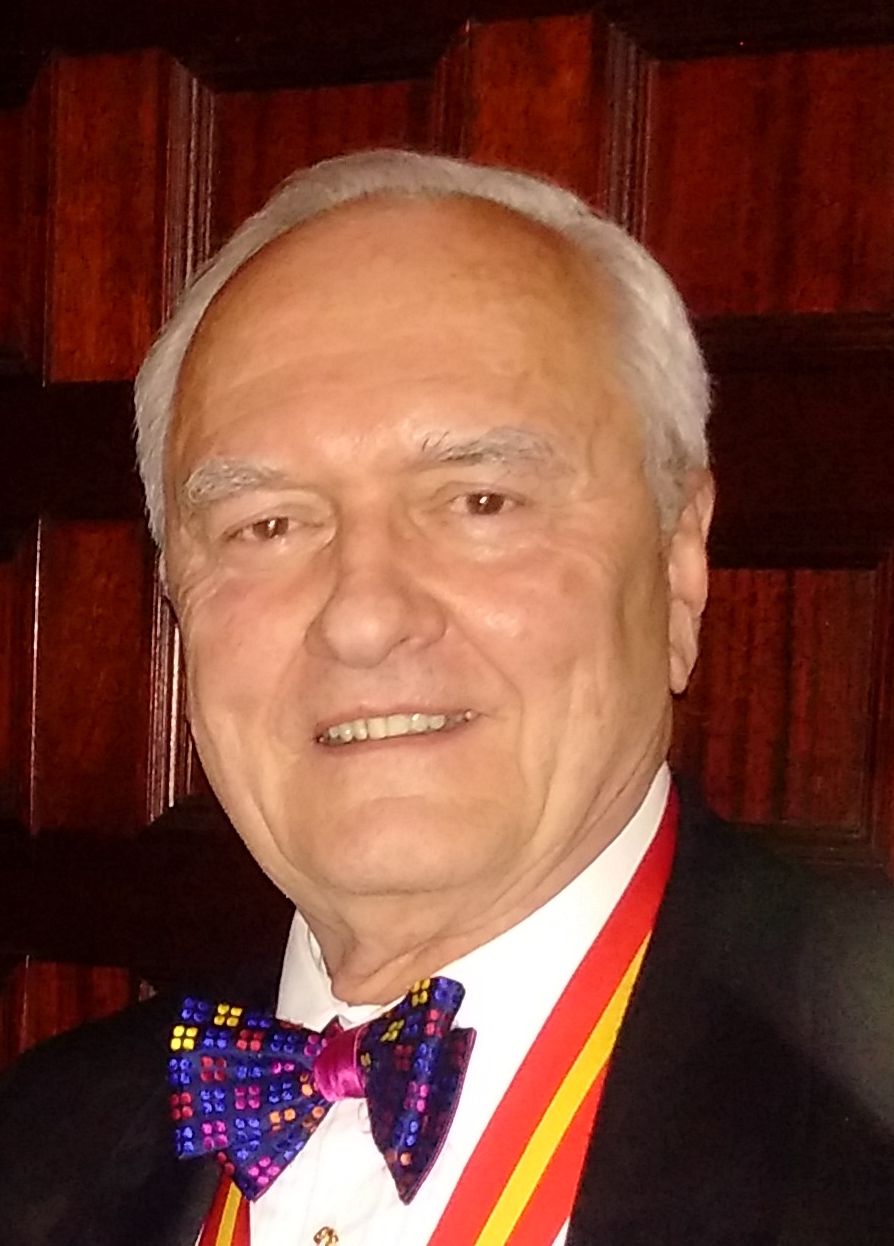
The operation and projects of the Wirth Institute for Austrian and Central European Studies are made possible in part by funds generated annually by the Wirth Endowment. Established in October 2003 by Dr. Alfred G. Wirth, the endowment also supports research grants, fellowships and scholarships in the field of Austrian Studies.
Dr. Alfred G. Wirth was born in Vienna in 1941 and moved with his family to Canada in 1952. Educated at Sault Collegiate Institute and St. Andrew's College, Mr. Wirth earned a BA (Honours) in Economics and Political Science and a graduate diploma in management from McGill University. He undertook senior management development at the University of Western Ontario and earned a number of other academic credentials and awards. Dr. Wirth has enjoyed a distinguished career in Canada's financial sector; his executive duties have included roles as Vice-President, Securities Investments with SunLife of Canada; as Senior Vice-President and Chief Investment Officer with Crown Life Insurance; and, since 1991, as President and Director of Wirth Associates Inc.
In creating the endowment that currently supports the Wirth Institute, Dr. Wirth has followed in the inspired footsteps of his late father, Dr. Manfred F.K. Wirth, who passed away in March 2003. Dr. Manfred Wirth's major contributions in 1999 and 2002 helped to establish the Institute as one of North America's leading centres of Central European studies. The establishment of the enhanced Wirth Endowment now guarantees the resource support necessary to maintain the Institute and its programmes in perpetuity. In recognition of this gift, the University of Alberta has renamed the former Canadian Centre for Austrian and Central European Studies the Wirth Institute for Austrian and Central European Studies.
The Wirth family's interest in the study of the history, society and culture of the region stems from both intellectual interest and a sense of altruism and social responsibility. Dr. Wirth's generosity has set the cornerstone of an institution that not only highlights the contributions of Austrian migrants to Canadian society, but also will enable Canadian students and scholars to keep the links with Central Europe alive and vital.
The Manfred F. Wirth Endowment
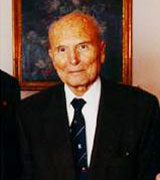
The late Dr. Manfred F.K. Wirth was born in Vienna in 1913, received university education in Graz, Innsbruck and Vienna, with special distinction in the field of Austrian history, and was awarded a doctorate in law from the University of Vienna in 1936. He began his career with the Austrian National Bank in Vienna, but moved to smaller private firms in the period from 1938 to 1945. From 1945 to 1951 he was the Sales Director for the Austrian National Steel Corporation (VÖEST AG) in Linz, one of the largest industrial enterprises in Austria, as well as administrator of the steel wholesale firm, Ehrenletzenberger.
In 1952 he emigrated to Canada where he was employed by Algoma Steel Corporation in Sault St. Marie, in charge of market research and pricing, and responsible for Algoma's entire transportation and export infrastructure. In 1959 Wirth left Algoma and founded his own company, the highly successful Montreal-based Wirth Ltd., which specialized in the import to North America of products of the Austrian National Steel Corporation, as well as those of related Austrian industries, with offices in New York, Atlanta, Houston, Cleveland, Chicago and Los Angeles. In 1993, at the age of 80, Wirth sold his company and went into brief retirement. Soon lured back to the life of an active entrepreneur, however, he founded a new company, M.F. Wirth Rail Corporation, which was engaged exclusively in the sale of European steel rails to North and South America. Dr. Wirth passed away in March 2003.
Dr. Wirth's commitment to his Austrian heritage focused not only on his old homeland, but on the broad cosmopolitan legacy of central Europe as a whole. The establishment of the Manfred F. Wirth Endowment provided the resource support that makes the ongoing study of this common cultural legacy of central Europeans possible both nationally and internationally. Generations of scholars and students will remain indebted to his vision and generosity.
The Marina Kovrig Fellowship
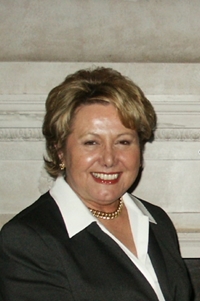
The former Marina Kovrig Postdoctoral Fellowship of the Wirth Institute for Austrian and Central European Studies was made possible by funds donated by the late Ms. Marina Kovrig between 2007 and 2010. The Fellowship's main purpose was to support the position of Assistant Director of the Institute.
Ms. Marina Kovrig was born in Prague in 1944, and after moving first to Austria in 1948 she emigrated to Canada with her parents in 1951. She held a B.A. in English & Languages from Mount Allison University, a High School teaching certificate from the University of Toronto and spent numerous hours in various courses, seminars and workshops as part of her belief in Learning a Living Continuously. She passed away unexpectedly on August 9, 2010.
Ms. Kovrig was a senior manager and executive, with a focus on government relations, public relations and sustainable development, in the Canadian owned, privately held multinational chemical manufacturing company, Recochem Inc. With twenty years of experience in lobbying, multi-stakeholder consultations and voluntary industry initiatives, she built a reputation within her industry and in many government departments for integrity, dedication and deep commitment to the consultative process for dealing with sensitive issues. As the first woman to be elected chair of the Canadian Consumer Specialty Products Association and the first woman on the board of the Canadian Chemical Producers Association, Ms. Kovrig's career demonstrated an ability to work graciously and win respect in difficult environments, while being frankly outspoken and passionate about defending just causes.
Her volunteer work on behalf of the chemical sector saw her working with Provincial, Federal and NGO groups to deal with issues as broad as household special waste management, smog reduction, designing Senior-friendly packaging, and establishing liaisons with colleges and universities to enable workers to continuously upgrade qualification. In other voluntary capacities she was a Director on the Board of CAMH and an active member of the Corporate Leaders Committee, a member of the Shaw Festival Governor's Circle, active member of the AGO Curators Circle and the Textile Museum Patron's Circle.
Ms. Kovrig was strongly committed to her Central European heritage, and saw the Wirth Institute for Austrian and Central European Studies as the best institution to transmit her cosmopolitan Central European vision to future generations of students. Believing that individuals can and do make a difference, she supported the position of Assistant Director for the Institute from 2007 to 2010 to further the fulfillment of her vision.
The Joseph Kuchar Fellowship
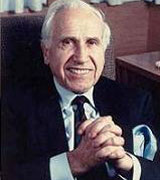
The former Joseph Kuchar post-Doctoral Fellowship of the Wirth Institute for Austrian and Central European Studies was made possible by funds donated by the late Mr. Joseph Kuchar between 2003 and 2007. The Fellowship's main purpose was to create and support the position of Assistant Director of the Institute during this period.
Mr. Joseph Kuchar was born in Siebenhirten near Vienna in 1916, and was educated in Czechoslovakia and Denmark. After working a year in the coal and steel industry in England, he returned to Central Europe. Finding himself in Austria in 1938, he fled to Czechoslovakia after the Anschluss and served briefly in the Czech army. After the Nazi seizure of Bohemia and Moravia, he went underground until 1945. Shortly thereafter, his life took another dramatic turn when he fled Czechoslovakia after the Communist takeover, escaping back to Austria where he founded a textile import-export company.
In 1950 Kuchar migrated to Canada, where he purchased a small mothball and deodorizer packaging firm, which he build into a giant Canadian owned, family held, multi-national chemical empire in the subsequent decades. The firm, Recochen Inc., has since become Canada's leading producer of naphthalene and now has five branches in Canada, as well as subsidiaries in the Unites States, Australia and Belgium, dealing in a broad range of chemical products. Kuchar was also an environmentalist, horse breeder and art patron. In 1983 he established a sprawling experimental farm in Quebec's Laurentian Mountains, which was given the aptly bilingual Central European name of "Waldeck - U Lesa". Among other things the farm was the leading Canadian centre for breading and development of Tyrol's famous Haflinger horses. Joseph Kuchar passed away in March 2011.
Mr. Kuchar was equally committed to both his Austrian and Czech heritage, and saw the Wirth Institute for Austrian and Central European Studies as the best institution to transmit his cosmopolitan Central European vision to future generations of students. Believing that individuals can and do make a difference, he created the position of Assistant Director for the Institute to further the fulfillment of his vision.
The Tova Yedlin Lecture Series
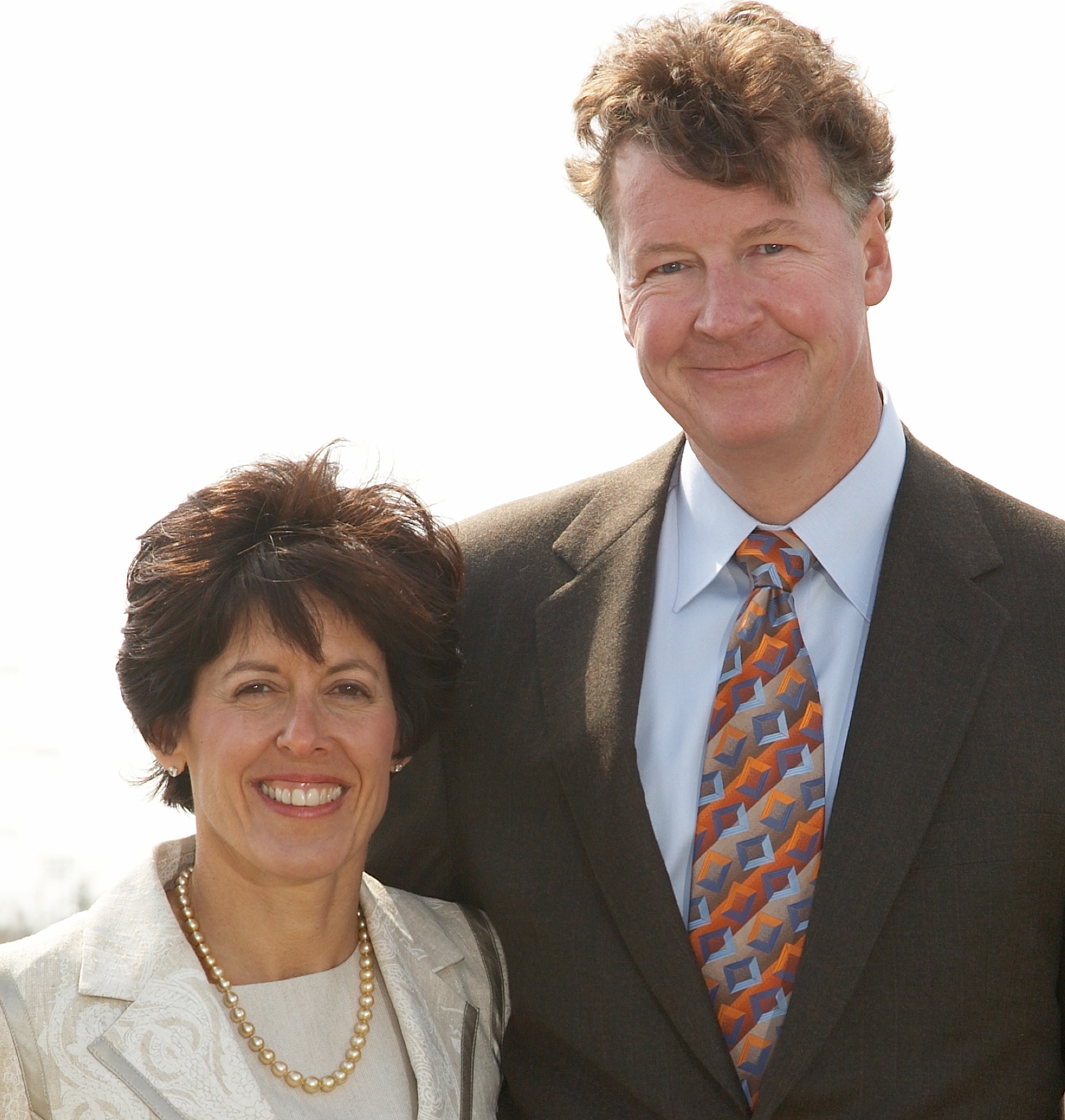
The Tova Yedlin Lecture Series of the Wirth Institute for Austrian and Central European Studies is made possible by funds donated by Mrs. Deborah D. Yedlin and Mr. Martin P. Molyneaux. Endowed in November 2007, the purpose of the series is to present an annual lecture by a prominent scholar on the history of Central and East European Jewry prior to the Holocaust.
Dr. Tova Yedlin was a long-time professor at the University of Alberta in what was then the Department of Slavic and East European Studies. Born in the city of Równe in the Wołyń Voivodeship of inter-war Poland (now Rivne, Ukraine), she graduated with distinction from the Tadeusz Kościuszko State Gymnasium-Lyceum in 1939. Evacuated to the Volga region of the Soviet Union after the German invasion of 1941, she escaped the mass-murder of Jews that took place there in 1941 and 1942, and immigrated to Canada after the war in 1948. Moving to Edmonton in 1950 she earned a B.Ed. (1956), an M.A. (1959) and a Ph.D. (1969) from the University of Alberta, where she subsequently taught Russian literature and social and intellectual history until her retirement in 1996. Her principal work, published in 1999 is a political biography of the Russian author, Maxim Gorky. Upon retirement she had actively engaged in building and supervising the Moshe Yedlin Memorial Library on Jewish studies at the Beth Shalom Synagogue in Edmonton. Dr. Yedlin passed away in 2017
The endowment that supports the Tova Yedlin Lecture Series was set up by Dr. Yedlin's daughter, Mrs. Deborah D. Yedlin and her husband, Mr. Martin P. Molyneaux, to honour their mother's many years of service to the University of Alberta, and her contributions to East European scholarship. Upon the advice of their mother, Mrs. Yedlin and Mr. Molyneaux placed the endowment with the Wirth Institute for Austrian and Central European Studies, as the scholarly unit at the University of Alberta best placed to organize and host the annual lecture.
The Tova Yedlin Lecture Series focuses on the history of Central and East European Jewry prior to the Holocaust, with particular emphasis on Jewish-Gentile relations, primarily in the period from the sixteenth to the nineteenth centuries.
The Toby and Saul Reichert Holocaust Lecture Series
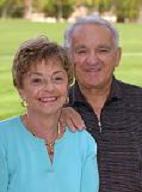
The annual "Toby and Saul Reichert Holocaust Lecture" series is supported by an endowment fund, initially begun by members of the Edmonton community, but topped up to its target level by a transformative gift by Mr. Saul and Mrs. Toby Reichert. Initiated in 2004, the lecture series is devoted to bringing a prominent visiting scholar in the field of Holocaust Studies to the University of Alberta annually to give a high profile, campus and community-wide public lecture on a Holocaust related theme.
Mr. Saul Reichert was born in Pabianice, Poland, in 1930. He was nine years old at the outbreak of World War II. When the German army occupied his hometown, the Reichert family was the quick to feel the full weight of Nazi persecution. Their home, business and possessions were plundered, and the entire family was forcibly resettled first in the Pabianice Ghetto and then in the infamous Lodz Ghetto. After the liquidation of the Lodz Ghetto Saul and his family were shipped to Auschwitz-Birkenau in an open cattle car. Upon arrival at the notorious death camp Saul was separated from his mother and sisters and never saw them again. As the Russians advanced on Auschwitz Saul and his fellow prisoners were marched under gruesome conditions from one labour camp to another. One of the few survivors of this so-called "death march," Saul also managed to escape the mass shooting of prisoners at the end of the war by hiding in a barn. He was liberated by U.S. troops on 8 May 1945.
With the help of the Canadian Jewish Congress Saul moved to Canada after the war and settled in Edmonton. He purchased Teddy's Lunch in 1950 and became a successful restaurant entrepreneur, in time owning and operating several restaurants in the Edmonton area. Mrs. Toby Reichert (née Taradash) was a native of Edmonton and was educated at the University of Alberta, receiving a B.Sc. in 1954. She was active in helping her husband build his restaurant business and in community and volunteer activities. Toby and Saul Reichert had four daughters -- Rochelle, Jerell, Adell and Bonny -- and ten grandchildren. Sadly, Mrs. Reichert passed away on November 22nd, 2021.
Together, the Reicherts regarded the Wirth Institute's lecture series as a way of keeping knowledge and understanding of the Holocaust alive among future generations of students, not only serving the purpose of commemorating the tragedy, but as a cautionary epistle against such monumental injustices perpetrated on the innocent.
The Joseph and Melitta Kandler Graduate Fellowship
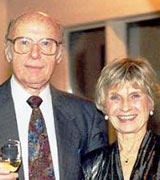
The Joseph and Melitta Kandler Graduate Fellowship of the Wirth Institute for Austrian and Central European Studies is made possible by funds donated periodcally by Mr. Joseph Kandler and Mrs. Lubomyra -Melitta Kandler. Established in 1999, the Fellowship's main purpose is to assist qualified graduate students in any discipline in the social sciences, humanities or fine arts working in the field of Austrian, Habsburg or central European studies to carry on part of their studies or research in Austria or any other appropriate central European country.
Dr. Joseph Rudolph Kandler was born in Vienna in 1921, and studied both at the University of Vienna and at Vienna's Hochschule für Welthandel, where he received a doctorate in commerce. He began his career in Austria as a sales manager, but turned to Chartered Accountancy when he moved to Canada in 1952. He practiced as an auditor with various firms in Edmonton, and later served as controller and vice-president finance of Healy Ford Center up to his retirement in 1986. Both in Alberta and British Columbia Dr. Kandler remained committed to his vision of creating lasting links between Canada and his country of birth, and was the founding president of the Johann Strauss Foundations of Edmonton (est. 1975) and Victoria (est.1985), which fund scholarships for advanced study of music in Austria. In 1988 Joseph and Melitta Kandler also initiated and endowed the International Student and Staff Exchange between the School of Business of the University of Alberta and the Wirtschaftsuniversität of Vienna.
Joseph Kandler served on the Board of Governors of the University of Alberta, and has been recognized for his contributions to both Austria and Canada with, among others, the Government of Alberta's Achievement Award for service to the community (1975), the Austrian Knight's Cross of Honour, First Class (1990) and the Golden Emblems of Honour of both the City of Vienna (1991) and Vienna's Wirtschaftsuniversität (1995).
Lubomyra-Melitta Kandler (née Melnechuk) was born in Cernauti (Czernowitz), Romania, in 1928 and educated at the Universities of Graz, Austria, and Alberta, receiving an MA in 1972. She served with the Government of Canada and a number of Edmonton firms as an administrator, and was an active contributor to both Ukrainian and Austrian community activities.
Joseph and Melitta Kandler now live on Salt Spring Island and continue to be active in community affairs.
The Árpád Berdin Hungarian Language Initiative
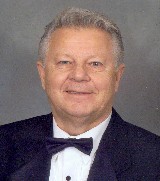
Thanks to the support of Mr. Árpád Berdin the University of Alberta was able to introduce Hungarian language instruction on a five-year experimental basis in its Department of Modern Languages and Cultural Studies. The so-called "Árpád Berdin Hungarian Language Initiative" was responsible for the establishment of annual courses in introductory and intermediate Hungarian, beginning in the 2003-2004 academic year.
Árpád V. Berdin was born in Lendava in 1935 - as a member of the Hungarian minority in the Prekmurje region of what is today Slovenia. He moved to Canada as a young man in 1954, and ever since was affectionately known by all as "Arpi". Beginning as a worker in the oilfields, he became interested in the sheet metal and ventilation industry, and opened his own business as "Arpi's Heating" in 1963. Within eighteen years the company (now renamed Arpi's Industries Ltd.) had an Edmonton branch, offices in B.C. and Saskatchewan, over 118 trucks, employed 500 people and operated as a full-service mechanical contractor in the commercial, institutional and residential fields. Among the dozens of commercial mechanical projects Arpi's Industries has completed are Bankers Hall and Foothills Hospital in Calgary, the Arts Center in Red Deer and Canada Place and West Edmonton Mall in Edmonton. In 1989 Arpi received the prestigious "Pinnacle Award" that exemplifies Alberta's top entrepreneurs.
A generous supporter of numerous Hungarian activities in Calgary, Arpi maintained a particularly strong interest in soccer, and for many years sponsored the Hungarian Soccer Club in Calgary and was a major benefactor of the annual Hungarian balls held in that city. Arpi passed the management of his company over to his daughter Julie but continued to be active as Chairman of the Board for sometime. He passed away December 21, 2015 in Calgary at the age of 80.
Wacław M. Osadnik
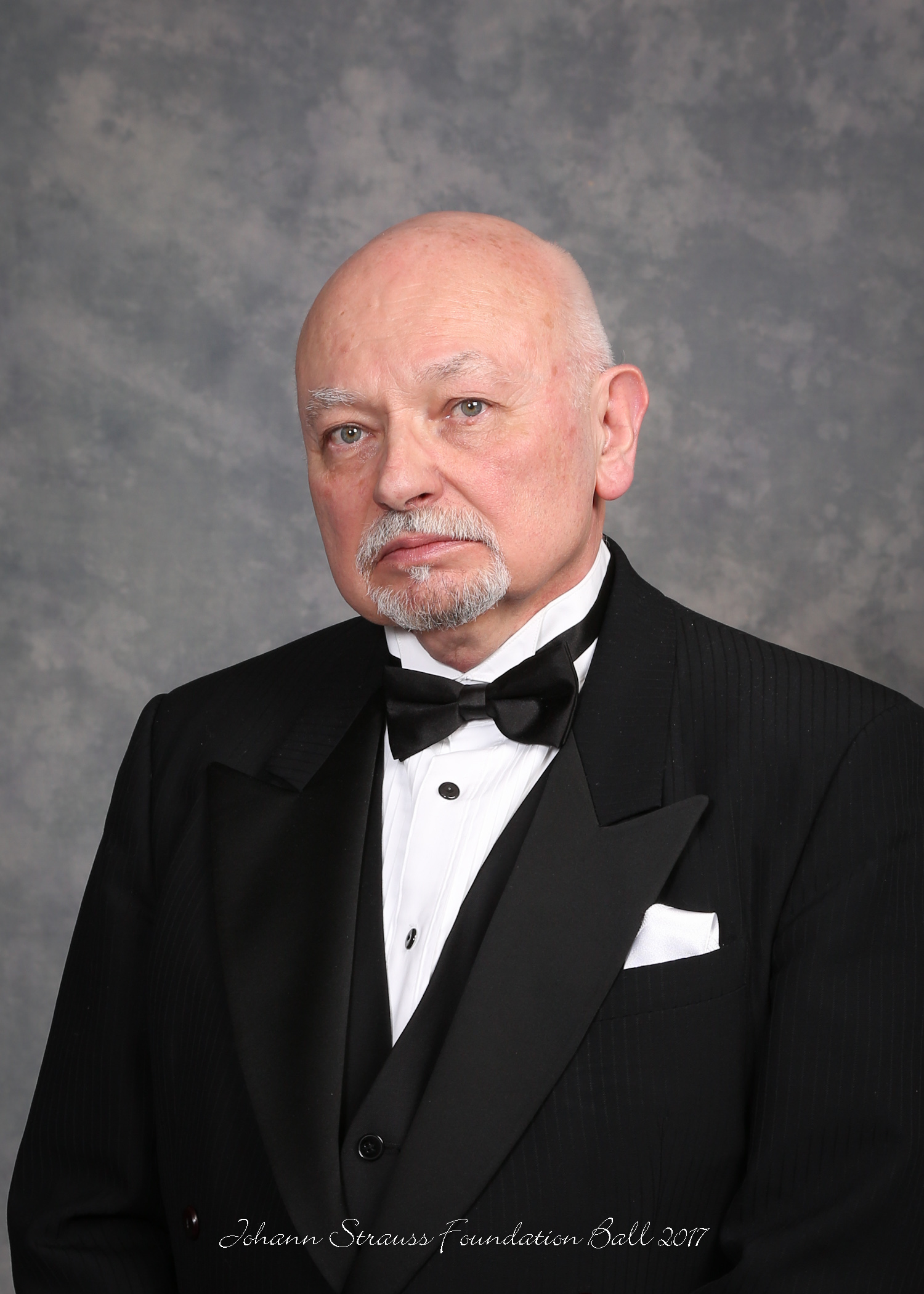
Dr Wacław M. Osadnik is a Professor of Slavic languages and literatures in the Department of Modern Languages and Cultural Studies at the University of Alberta. His research interests and publications address the history of Polish language, literature and culture, history and theory of translation, South Slavic linguistics, as well as Central and East European cinema.
Thanks to his generous donation in December of 2018, the Wirth Institute is now in the process of establishing a Post-Doctoral Fellowship Award supporting a Central European scholar of excellence during their studies in Edmonton.